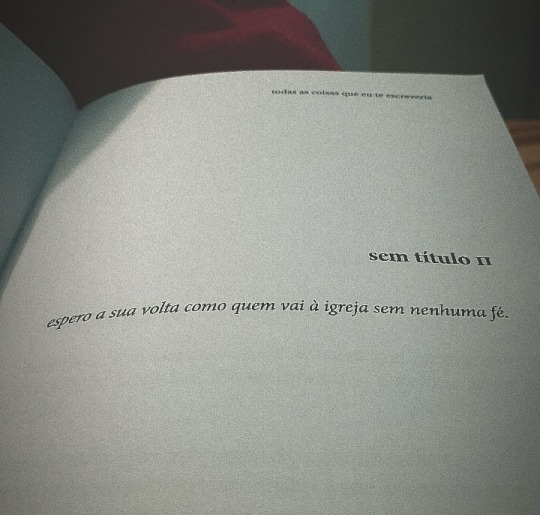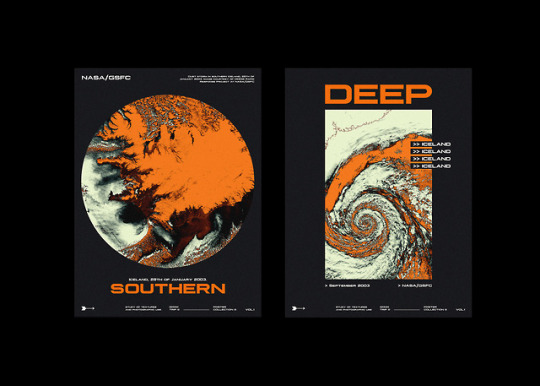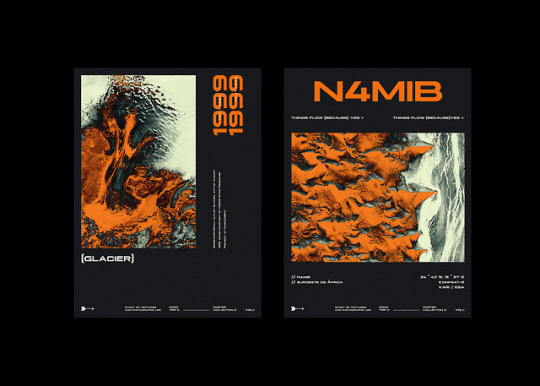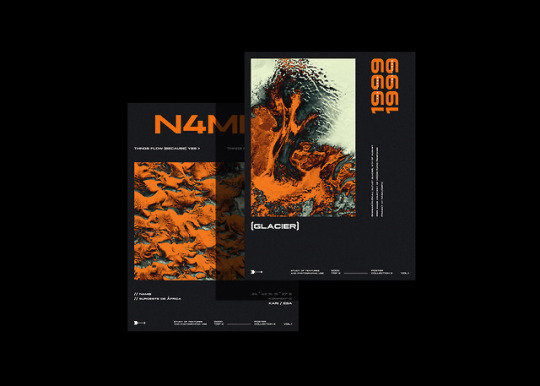#jastro
Photo


Queen Guinevre's Maying by John Collier & Hecate Chiaramonti (Marble, Roman copy after an original of the Hellenistic period) - photo by Jastro (2006)
In the dawn of the fifth epoch, accordingly, there were persons who, not exactly through their training but through certain mysterious influences, became the instruments, the vehicles, of cosmic influences issuing from the Sun and Moon during their passage through the signs of the Zodiac. The secrets that could then be won for the human soul through these individuals were a repetition of what had once been experienced through the Sentient Soul. And the persons who expressed the transit of the cosmic forces through the signs of the Zodiac were those called “The Knights of King Arthur's Round Table”. Twelve in number, they had around them a band of other men, but they were the principal Knights. The others represented the starry host; into them flowed the inspirations which were more distantly distributed in cosmic space; and into the twelve Knights flowed the inspirations from the twelve directions of the Zodiac. The inspirations which came from the spiritual forces of the Sun and Moon were represented by King Arthur and his wife Guinevere. Thus in King Arthur's court we have the humanized Cosmos. What we may call the pedagogical high school for the Sentient Soul of the West proceeded from King Arthur's Round Table. Hence we are told — and the legend here refers in pictures of external facts to inner mysteries which were taking place in the dawn of that epoch in the human soul — how the Knights of King Arthur's Round Table journeyed far and wide and slew monsters and giants. These external pictures point to the endeavors of human souls who were to make progress in refining and purifying those forces of the astral body which expressed themselves for the seer in pictures of monsters, giants and the like. Everything that the Sentient Soul was to experience through the later Mysteries is bound up with the pictorial concepts of King Arthur's Round Table.
—Rudolf Steiner, The Mysteries of the East & of Christianity: Lecture IV
Thus during the course of the historical development of man forces have been at work in his nature which have changed his whole relationship with Demeter. Out of the human body, once so rarefied, Demeter was so to say driven. She was driven out of the astral body with its lost clairvoyant capacities and Eros took her place. In return, as I have shown you today, certain different Eros-free forces in human nature came more under the sway of Demeter. Thus during this period from the time of Atlantis up to the present day a force has been working on the development of human nature in three ways: there is a triple kind of development, of transformation, a triple kind of metamorphosis, emanating from the ether body and working upon the physical body, upon the ether body itself, and upon the astral body. This force of genetic change has been and still is in human nature. It changes us from youth to age by leading over the forces of Eros into those of Demeter. There is in our organisation this threefold development which in the physical body brings about changes in the conditions affecting sickness and health, which causes the ether body to reflect knowledge in a different way, and which transmutes the torch of knowledge in the astral body. How wonderful it is to find these genetic forces represented in Greek mythology, forces which are active in all of us, forces which transform our astral bodies and therefore the nature of Demeter herself. These human etheric forces which work upon the physical body, upon the ether body itself and upon the astral body are represented by the threefold Hecate. Whereas today we say that forces of metamorphosis emanate from the ether body in a threefold way, the Greek spoke of the threefold Hecate.
—Rudolf Steiner, Wonders of the World: Lecture II
0 notes
Text
2020 San Diego Padres Player Names With 1st Letters Reversed
Dach Zavies
Phris Caddack
Austin Adams
Aan Dltavilla
Him Till
Jierce Pohnson
Mdrian Aorejon
Pmilio Eagan
Puis Latino
Prew Domeranz
Rarrett Gichards
Sraig Ctammen
Satt Mtrahm
Rrevor Tosenthal
Cuis Lampusano
Cason Jastro
Nustin Aola
Cake Jronenworth
Greg Garcia
Hric Eosmer
Manny Machado
Morge Hateo
Mitch Moreland
Ternando Fatis; Jr.
Grent Trisham
Mil Wyers
Pommy Tham
Purickson Jrofar
Cose Jastillo
Enderson Aspinoza
Wrey Tingenter
Yirby Kates
4 notes
·
View notes
Text
Le Walibi Rhône-Alpes vous attend pour un moment de détente
Si vous cherchez des activités à faire dans les prochains mois, sachez que vous pouvez vous rendre au Walibi Rhône-Alpes. Vous pourrez vous y amuser en famille ou en amoureux avec ses nombreuses attractions à sensation.
Crédit photo : Jastro de Pixabay

0 notes
Text
Traditional Japanese Months
Japan has traditional names for each month, mostly used poetically or in names. They follow the Chinese lunar calendar, so they would start a few weeks later than the Western calendar everyone uses (e.g. the first month could be in mid-January or February). Their names and possible literal meanings in chronological order are:
1
Name: 睦月 (むつき, Mutsuki)
Literal Meaning: Month of harmony
2
Name: 如月 / 衣更着 / 更衣 (きさらぎ, Kisaragi)
Literal Meaning: Month "like the moon" / Month of changing clothes
3
Name: 弥生 (やよい, Yayoi)
Literal Meaning: Growth
4
Name: 卯月 (うづき, Uzuki)
Literal Meaning: Month of 卯の花 (うのはな, Unohana), deutzia
5
Name: 皐月 (さつき, Satsuki)
Literal Meaning: Month of planting rice sprouts / Month of azaleas
6
Name: 水無月 (みなづき, Minazuki)
Literal Meaning: Month of no water (or Month of water, if 無 [な] is interpreted as a particle)
7
Name: 文月 (ふみづき / ふづき, Fumizuki / Fuzuki)
Literal Meaning: Month of literature
8
Name: 葉月 (はづき, Hazuki)
Literal Meaning: Month of leaves
9
Name: 長月 (ながつき, Nagatsuki)
Literal Meaning: The long autumn month
10
Name: 神無月 (かんなづき / かみなづき, Kan'nazuki / Kaminazuki)
Literal Meaning: Month of no gods (or Month of gods, if 無 [な] is interpreted as a particle)
Note: in Izumo, Tottori prefecture, this month is called 神在月 / 神有月 (かみありづき, Kamiarizuki) ”Month with gods” because the gods gather there.
11
Name: 霜月 (しもつき, Shimotsuki)
Literal Meaning: Month of frost
12
Name: 師走 (しわす, Shiwasu)
Literal Meaning: Running (busy) priests (for New Years)
Sources:
http://www.renshaworks.com/jastro/calendar.htm
http://www.sljfaq.org/afaq/number-dates.html
http://jisho.org/search/*month%20of%20the%20lunar%20calendar
https://www.thoughtco.com/can-you-tell-me-the-old-names-of-the-months-2027868
http://kanji.jitenon.jp/cat/hyoki15.html
https://klingonbuddhist.wordpress.com/2009/03/23/months-in-the-japanese-calendar/
1K notes
·
View notes
Text
RE: Dust to Glory: Creation | RC Sproul

Lecture 1, Creation: The whole scope of SCRIPTURE has
been given to us by GOD for our instruction, for our reproof,
& for our edification;
Here Dr. Sproul starts out the “Dust to Glory” series in the
first book of the BIBLE, Genesis. He speaks on the
controversies we see & lessons we learn from Genesis’
recount of “Creation”.

Teaching Series Overview
1. Creation
2. The Image of GOD in Man
3. The Fall
4. Covenant with Abraham


Purpose of Life: Obedience

From Dust to Glory, those are the words that we're using
to put a bracket around the whole scope of biblical history.
Because the purpose of this study that we're undertaking
today is to give to people a brief overview of the Holy
SCIRPTURES.
I think at the beginning of the occasion when our LORD
HIMSELF was confronted with all of the concentrated
power of Hell, when in the Judean wilderness
Satan came to HIM & sought to corrupt HIM;
& you remember that in that engagement
JESUS said to Satan,
"Man does not live by bread alone,
but by every WORD that proceedeth
forth from the mouth of GOD."
And if there's anything, I think, that captures the essence
of the life of CHRIST, it was HIS passion to do precisely
that—every step HE took, every word HE spoke, every
deed HE accomplished was done always with a view to
obedience to every WORD that proceedeth forth from
the mouth of GOD. [1:26]
● Deuteronomy 8:3 | ³ HE humbled you, & in your hunger
HE gave you manna to eat, which neither you nor your
fathers had known, so that you might understand that
man does not live on bread alone, but on every word
that comes from the mouth of the LORD.
● Matthew 4:4 | ⁴ But JESUS answered, “It is written:
‘Man shall not live on bread alone, but on every word that
comes from the mouth of GOD.’”
● Luke 4:4 | ⁴ But JESUS answered, “It is written:
‘Man shall not live on bread alone.’”

Source of Life/Joy: GOD’s WORD

Now I can remember 30-something years ago when I
began teaching, I was given the assignment of teaching
Introduction to the OT & then Introduction to the NT.
And I had students come up to me with great excitement
& joy & say, "Oh professor Sproul, you make the BIBLE
come alive for me."
I very much appreciated the compliment & the flattery
on the one side—the side of the flesh—but there was
another part of me that was distressed by that kind of
comment, & I used to say to those students that were
so excited:
I was delighted that they were responding in that
way to their maiden voyage of studying the sacred
SCRIPTURES.
But I told them, “Look, I can't make the BIBLE come
alive because I can't make anything come alive that
already is alive.
Now there's nothing wrong with sacred SCRIPTURE.
What you're noticing with my animation & my excitement
is my response to the SCRIPTURES.
It would be much more accurate to say that the BIBLE
makes me come alive, rather than my making the
BIBLE come alive.”

Overview of the BIBLE

Now we see here in this setting today, all these BIBLES
that are scattered about on the bookshelves, & we see
all different shapes/sizes/versions/editions. [2:53]
And we can scarcely find a home in this nation where there
is not at least one version of the BIBLE to be found on a
shelf; & we have discussions about the nature of
SCRIPTURE, & arguments about its authority & its inspiration
& infallibility, how we're supposed to interpret it, & that sort
of thing.

But the great crisis in our day, beloved,
is a crisis of neglect of the
content of this BOOK. [3:27]

It doesn't do us any good if we have a high view of
SCRIPTURE, but don't know what's found in its sacred
pages, & I know that many Christian people begin with great
resolve in their early Christian pilgrimage & say,
“I'm going to read the BIBLE from cover to cover.” [3:46]
I've spoken to groups all over the place where I'll ask people,
“How many of you have read the Book of Genesis?”
& most everybody's hand goes up. Then I'll say,
“Okay, how about Exodus?" & they raise their hands.
“Leviticus?” The hands start to go down.
“And Numbers & Deuteronomy?” The hands are declining,
& they'll look at me & say,
“I just can't find my way around the OT. The details are
so strange to me. They're so foreign,” & so on.
But the whole scope of SCRIPTURE has been given to
us by GOD for our instruction. [4:24]
For our edification; & I have found in the past that if we
begin with a wide/broad survey of the major themes of
SCRIPTURE, that can give us the hooks as it were to
hang our hat as we then go back & look at each
Book of the BIBLE. [4:44]
Then finally to each verse of the BIBLE, & so on.

So what I'm hoping we'll be able to accomplish in this brief
time together is to light a fire under all of us, that we may
renew our resolve to come to grips with the content of
sacred SCRIPTURE. [5:02]

Having said that, let's begin our study at page 1, the 1st CH
& in the 1st Book of Genesis, beginning with v.1. Let's look
at it as we consider the teaching of the text. [5:21]

1.] There is a Beginning to TIME

¹ In the beginning GOD created the heavens & the earth.
That’s the first proclamation/assertion that is found in the
Holy BIBLE; there are 3 words of importance that are
crucial for us, if we’re going to make a good beginning
for understanding the whole scope of redemptive history.
From Dust to Glory [5:53]
Those three words are these:
Beginning, GOD, created
Because in these 3 words, we have those central affirmations
of biblical Christianity that set Christianity apart from all forms
of atheism/naturalism/secularism/humanism/existentialism, &
a host of other isms that compete with the faith of Christianity
for people’s allegiance in our day. [6:05-6:33]
It could be said that the most controversial sentence of all of
SCRIPTURE is this first one:
That in the beginning GOD created the Heavens &
the Earth. And the controversy starts early.
It starts with the first word, "beginning" because what
is asserted here, in this affirmation is that from which
the Book of Genesis gets its name—that which is
generated, has a genesis (manifestly) has a beginning
—a starting point in time.
And when we talk about the progress of the history of
redemption from dust to glory, we are making an assertion
that is radical for our whole understanding of who we are as
people & what our lives mean, & what we're supposed to be
about in this world. [7:13-7:31]
We are saying there is such a thing as history, & that history
has a beginning point in time & that time itself has a
beginning.
Now that may seem to be something that we just take
for granted, but it isn't taken for granted in competing
philosophical systems in our culture today. [7:55]

Think back to the 19th century philosophy of
Frederick Nietzsche, who's famous for his declaration
regarding the death of GOD.

Well early on in his philosophical studies, in fact when
Nietzsche was a student writing his doctoral dissertation,
he looked back to the conflict of ideas that had already
arisen in the ancient Greek world;
& he recovered for his day what he called the
myth of eternal recurrence, an idea that was rooted in
ancient Greek philosophy that the universe doesn't have
a beginning, a starting point. [8:09-8:37]
But rather the universe & everything in it basically is eternal,
& everything goes round/round/round without a beginning
& without end.
This is captured/summarized in one of the most important
pieces of literature in the OT.
For example, the Book of Ecclesiastes addresses the pagan
notion of skepticism that is tied to this idea, where the sun
sets, & as Hemmingway borrowed for the title of his book:
The Sun also Rises. [9:19]
And then the sun sets, then it rises; it sets, it rises.
And you begin to see this cyclical view, & leads to the
conclusion that there is no purposeful beginning.
There is no specific endpoint of human history, or of natural
history, & the result is vanity of vanities. [9:49]
All is vanity because we are, in a cosmic sense,
caught in the trap of running around in circles,
heading nowhere. [10:03]

2.] There is a Start Date to Earth

But at the very beginning of sacred SCRIPTURE, there
is the affirmation that there is a beginning—that there
was a time when the universe did not exist.
Now we know that even in modern cosmological theories,
there is much debate on how the universe came into the
present form & structure that it is.
There have been debates between steady state views of
cosmology & the expanding universe & big bang theory
& all of that. [10:40]
But today, the consensus is that there was a point in time
—15-18 billion years ago run some of the estimates—
where, suddenly there was this massive explosion:
where all of the current matter & energy previous to
that moment had been condensed into one tiny little
point called a point of singularity;
then on one Tuesday afternoon it blew up, & the results
of that explosion are still reverberating throughout outer
space. [11:14]
Though people don’t like to speculate what was going on
before that at least this carries the idea that there was a
beginning.
And if there is a beginning, to this world, the obvious question
that becomes the central focal point of controversy & debate is
● How did it get started?
● What started it? [11:44]
If everything was in a state of pure organization for eternity—
all matter, all energy condensed & compressed into this
infinitesimal point of singularity & in an eternal state of inertia
—why did it move?
You know the law of inertia:
Things at rest remain at rest, unless
acted upon by an outside force.
Those things that are in motion tend to remain in motion,
unless acted upon by an outside force. [12:19]
Cosmologists like Jastro say that perhaps the mountain that
the scientists are climbing today, when they reach the summit
or the acme of that mountain, they will find the theologians
around the tent waiting for them there:
To tell them there has to be an outside force for anything
to change/move/come into existence. Because the one
thing we know for sure, even apart from the work of sacred
SCRIPTURE, is that if there was ever a time when there
was nothing! All there would be now would be nothing, &
even that’s improper to say. [13:06]
Because you can’t say there would be nothing, because
nothing has no being, & the term ‘to be nothing’ would be
self-contradictory, wouldn’t it? [13:22]
But the idea here is that there is a radical difference between
all creaturely existence—everything that is part of this finite,
temporal universe & its author.
That’s why Christianity doesn’t stop by simply saying:
“In the beginning,...” but it says, “In the beginning 𝐆𝐎𝐃..”
At this point, there’s no argument for the existence of GOD.
All we have on the opening page of sacred SCRIPTURE is
the bold declaration of GOD’s being the author of everything
that is: “In the beginning, GOD,....” [13:55-14:10]
If there is any kind of a beginning,
to anything whatsoever,
that which has a beginning in time
must have something preceding it,
or it could not begin. [14:29]
That’s simply another way of saying what I said a moment ago.
If there was ever a time when nothing existed,
there couldn’t possibly be anything now.
And so now we’re speaking here in SCRIPTURE about the
beginning of space & time, the beginning of the created universe.
But for there to be a beginning to the created universe, there must
be something that stands above & beyond the created universe.
[14:38-14:56]
Something that has no beginning, something that is,
in & of itself, eternal & self-existent, something that
has the very power of being in itself. [15:10]
That’s also part of radical affirmation of the first statement of sacred
SCRIPTURE, the proclamation of the reality of the existence of GOD.

3.] GOD creates ex nihilo

Now I’m going to come back to this word [GOD] in a moment,
but let’s go to the next one: created. [15:31]
In the beginning GOD does something.
We’re not told simply of the bare existence of GOD in the first
CH of Genesis, but the Book of Genesis introduces
GOD in action, GOD doing something. [15:50]
And what HE’s doing here is the most
magnificent & fantastic work that has
ever been done—in terms of activity, &
it’s the creation of the universe.
I know we use this word, “to create” in metaphorical ways.
I like to dabble on the side in some of the arts.
I like to play the piano, I’m not very good at it, to tell you the truth.
And I dabble in painting as a rank amateur, & I read
the books about these things, & they talk about the
inherent creativity of the musician/artists, & I find this
great fun to get the palette set out & to get the little
tubes of paint & spread them out.
Sort of like a kid playing in the mud, & I begin to mix
these colours together & try them out on the canvas,
& I look at that, & think, “Oh that doesn’t look so good.”
I change it around, & we call this creativity. [16:50-53]

But there’s really no creativity in here
at all, in the biblical sense. [17:01]

All I’m doing is taking substances that are already there, &
shaping/forming/mixing/arranging on a canvas, so that
whatever creativity the artist has is a mediated creativity.
A creativity within the framework of some kind of medium.
But the biblical view is far more startling than that because
it presents an act of creation where there is no medium.
[17:25-17:39]
It’s not as though 15-18 billion years ago, GOD came down with
HIS brush & palette, & HE began to mix HIS paint & shape/figure
& draw/organize a picture. [17:55]
No, there was no paint.
There were no brushes/palette/canvas.
And so in biblical theology, when we try to get a hold of the biblical
account of creation, we get this concept: GOD creates ex nihilo.
which means, “out of nothing”
That there’s no pre-existent matter that HE forms/shapes/arranges,
but that which exists comes into being through this active power
that GOD alone has. [18:38]
As the NT indicates in the writings of the apostle Paul, that
GOD alone has the power to bring life out of death, &
something out of nothing. [18:49]

4.] None of Our Calculations Explains GOD

Now how did HE do it?
Now again, I think there’s great value in tracking the movement of
astronomical bodies, & speculating on what happens when various
gasses & elements collide with each other. [19:08]
And mix together & how seas are formed & how flowers grow.
I think there’s a great great value in the studying of the natural realm.
GOD HIMSELF has called us to do that. [19:23]
But no amount of studying that describes those things that are
going on in the intricate patterns & workings of natural forces
can account for this. [19:38]
This is the supreme work of [GOD], that’s not just natural, but it is
supernatural, that is it takes us above & beyond the theater of
nature: To the beginning of nature,
to the AUTHOR of nature,
Who creates out of nothing.
Again the BIBLE doesn’t tell us how HE does it. [20:03-11]
The only thing that we’re told in Genesis about GOD’s mode of
creation is that HE creates by the speaking of HIS WORD.
St. Augustine calls this the divine imperative/fiat—not to be
confused with the small Italian car. A divine imperative simply
refers to GOD’s transcendent/majestic/holy command—where
HE speaks into the void & says, “Let there be!” [20:55-21:00]
And by the sheer power of the command
of ONE who eternally has the power of
being in & of HIMSELF, a universe begins.
Genesis 1:1-3 | ¹ In the beginning GOD created the
heavens & the earth. ² Now the earth was formless
& void, & darkness was over the surface of the deep.
And the SPIRIT of GOD was hovering over the
surface of the waters. ³ And GOD said,
“Let there be light,” & there was light.
[21:15-21:39]
Here in v.2, Genesis we’re given a graphic description of the
unordered/unstructured—really uncreated universe that is
described in terms of 3 basic negatives:
formless/emptiness/darkness. [22:09]
If you see that way in which those 3-words are used in the
imagery of ancient cultures, those three terms tend to combine
to encompass & capture 3-of-the-most-threatening ideas there
can be to human existence & to meaning. [22:32]
● Formlessness is really unimaginable, because absolute
formlessness would be absolute chaos, & you couldn’t
even recognize chaos as being chaotic without some
idea of form. [22:51]
● Emptiness: How we use that term to describe the worst
sensations that we have in our souls, when we feel
frightened/alone, & some say our lives are empty. [23:08]
Imagine not just an empty house/bed/garage, but imagine
an empty universe: No form, nothing. [23:23] but darkness.
● Darkness itself is a pure negative term, because darkness
is not so much the presence of something as it is the
absence of something, the absence of light. [23:43]
And so all we have so far in this picture is the void, the
formlessness, the emptiness, & the darkness. [23:55]
And in v.3, we have a new agent mentioned:
And the SPIRIT of GOD hovered over the abyss/deep,
over the darkness & emptiness & void; & then we hear
for the first time, the Voice of GOD. [24:19]
And GOD says,
“Let there be Light.” Instantly light breaks into the universe
bursts over the darkness, vanquishes the darkness, begins
to fill the empty cavities & begins to provide a structure for
GOD to form HIS world with waters & trees & plants &
animals & ultimately with people. [24:56]
But the very reality in which we live every moment of our lives
is utterly inexplicable apart from someone/how/where saying:
“Let there be! [25:14]
And by the power & the force of that command, the lights come
on, & the world begins, & a setting is established for GOD to
scoop HIS hands into the dust & to prepare a creature for
HIS glory. [25:42]

SYNOPSIS:

SCRIPTURE has been given to us by GOD for our instruction.
resolve to come to grips with the content of sacred SCRIPTURE.
By the very definition of a beginning, the world demands the
existence of GOD to create it. The ONE who is eternal & powerful
& self-existent.
0 notes
Quote
the mind's tight grip
on silence. . .
Jack Hernandez, “Jastro Park”
1 note
·
View note
Note
1, 18, and 23!
Thanks for asking.
01. which world/region is your favorite? least favorite? why?
I’m going to assume we’re talking about fictional worlds here. For favourite, I’d have to say Hyrule, from the Legend of Zelda series. This was actually my first major experience with the fantasy genre, when I got a copy of Link’s Awakening for my Gameboy Pocket. Given that the Zelda games are about exploration, I have fond memories of exploring a fantasy world and discovering the concepts within it. (And yes, I am aware that LA is the one game that doesn’t take place in Hyrule. But it was my gateway to the series.)
As for least favourite, I don’t have a specific one. But there are some worlds that try too hard to be dark and gloomy, and that does turn me off reading them.
18. what kind of jobs exist in your fantasy world? what is the career of your main character(s)?
There’s a few nations in Alvernia, but my stories all take place within the Kingdom of Rychilla. The Kingdom’s technology can be best described as ‘steampunk magitech’. I’ve not done up a comprehensive list of jobs yet, but here’s what I’ve come up with so far:
Humans
Town/City
Barber
Town Guard (several ranks)
Veritor (Police Inspector/Magistrate - highest rank of town guard)
Mechanic
Taven Proprietor
Cook/chef
Merchant
Teacher
Mage
Country
Farmer
Farmhand
Cropper
Transport
Taxi Driver
Aircrew
Riverfarer
Fairies
Town/City
Messenger
Village Protector
Country
Forest Protector
Forest Ranger
Further to this, the designation of ‘chief’ in front of a title means that that person is a leader in their profession. For example, a chief mechanic is a mechanic in charge of a workshop, with other mechanics working under their direction.
Another point to note is that titles are used in the form
, not as it is in our world. The Rychillan thinking behind this is that it’s the person who holds the title, not their family.
I have four characters in my main cast, two fairies (Yaetherim and Naeliya) and two Rychillans (humans - Karis Relinda and Tenora Perskel). Karis is a veritor, who takes her duty to protect the peace of the kingdom very seriously. She’s known as ‘the steel veritor’ for her cold, unflappable demeanour and her natural, steel-coloured eyes and hair.
Tenora is the chief mechanic of a workshop near the airship terminal. She’s a bit of a mechanical prodigy, and has earned the respect of every mechanic in her workshop.
Naeliya is a messenger fairy. She finds this job boring, and longs to do something more with her life.
Yaetherim is an Inquirer, a job that’s not mentioned on the list above. This is because it’s a job that he pretty much created. It’s the Rychillan title for a private eye. There’s a bit of backstory involved here.
8 months before taking this title, Yaetherim was a forest protector. While on patrol one day, he was attacked by two renegade Rychillans and left for dead. The investigation of this attack was assigned to Veritor Jastro, the least experienced of the three vertiors based in Alkentoft. Veritor Jastro is not good at time management, and so this case fell to the bottom of his pile. After another fairy was murdered by the same people (same MO), Yaetherim investigated the case himself. After solving it, and a bit of prodding by one of the local deities, he became the Inquirer so that no others would be in the same position as him.
As an inquirer, he mostly investigates gut feelings and hunches on behalf of his clients. If there’s something going on, he’ll gather evidence and bring the town guard in as needed.
23. what type of jewelry is typically sold/worn, if any? who would be the one to purchase it?
This depends on the species. Fairies don’t usually wear jewellery at all. Humans, such as Rychillans and Druhlac, do. This jewelry may be plain or ornate, depending on the taste and budget of the wearer. But the main function of this jewelry is to hold the elemental crystals from which the energy for magic is drawn. Humans need to have these crystals touching their skin in order to be able to draw on the energy within them. (Fairies just need to have the crystals close to their skin.)
As such, rings will have the crystal pushed through from the top, so that they touch the skin of the finger below. Bracelets and anklets are similar. Necklaces usually hold the crystal in a way that it rests on the skin just below the neck.
Each crystal has a limited amount of energy, in proportion to the size of it. Less expensive jewelry has just a single crystal set into it. When the crystal expires, the jewelry has to be replaced, or re-worked with a fresh crystal. More costly jewelry has clasps that allow the crystals to be removed and replaced easily.
Jewelry of all types (necklaces, bracelets, anklets and rings) are worn by both genders. People generally buy it themselves, as it’s a matter of personal taste and functionality.
As for my characters, Tenora and Karis are the only humans in my core cast. Tenora wears a ring. She’s a mechanic, so a bracelet, anklet or necklace could possibly get caught in machinery. Karis wears a necklace, as these offer the most flexibility in terms of crystal size.
0 notes
Text
Jastro Park Pickle Ball and Tennis Courts Rehabilitation Project
Bakersfield Purchasing Division
Due Date: November 13, 2018 11:00 AM
source http://www.californiabids.com/bid-opportunities/2018/10/25/8988200-Jastro-Park-Pickle-Ball-and-Tennis-Courts-Rehabilitation-Project.html
0 notes
Text
Moving Along: Character Introduction
Now that you’ve heard of Gary Boony, we’ll move onto another character. Of whom is popular among those who learned about them.
There is rumored to be a group of godly beings that manage reality itself. While it is a theory (or a nonsensical rumor, as many non-Xyian religious groups claim) there has been evidence suggesting that this group does infact exist. That evidence being an entity named Illtheris. Illtheris is regarded as a mad god, doing what he wants when he wants. This had lead to the creation of the ireful Reminiscence, the corruption of a group of Alvoian scholars, the existence of the Realm of the Mad, and much more. As for general appearance, Illtheris favors a 190 cm tall, monochrome humanoid form. Often, this form wears a black long coat with standard formal attire, also colorless. This can change at any given moment, however. As for his personality… Mortals perceive him to be insane or psychopathic. However, Illtheris is more eccentric than mad. While he may be a terrible person, Illtheris isn’t all that bad as he’s cracked up to be. He has been noted to have a twisted sense of humor, and is regularly energetic. Illtheris, like nearly any other sentient beings, has been noted to show anger. But unlike most other sentient beings, they can’t completely ruin a large portion of reality out of destructive rage. It has been noted that Illtheris has a particular fondness for cheese, or addiction as it seems to mortals… Illtheris was once a Qothien himself. He was a renowned Soukel scientist, Stanic Illtheris Jastro. Jastro, along with other researchers, were on the brink of discovering the theoretical beings that control reality itself. However, Jastro had discovered something far different; an unusual form of magic (previously mislabeled as an element upon discovery); Astraabscer. It was renamed to Astral Flame, or dark fire, after the Alverika Conclave had investigated the mislabeled magic. This discovery had thrown Jastro and his fellow scientists, off of their previous endeavor and began researching Astraabscer. However, soon after the discovery, Jastro had seemingly died in a fatal accident involving the magic. He, along with his entire private research facility, had exploded, due to an attempt to summon as much of the flame as possible. This, however, is not the end of Jastro. He still did exist, but was in a completely different form. Something greater than what he was before. It’s generally unknown about what happened between Jastro’s demise and Illtheris’ resurfacing, but it’s assumed that he had took the time to adjust to his new form. And that is Illtheris. While there is so much I have yet to cover about him, this should give you a general idea of what to expect when it comes to the mad god. And of course, there is a lot in store for Illtheris…
0 notes









